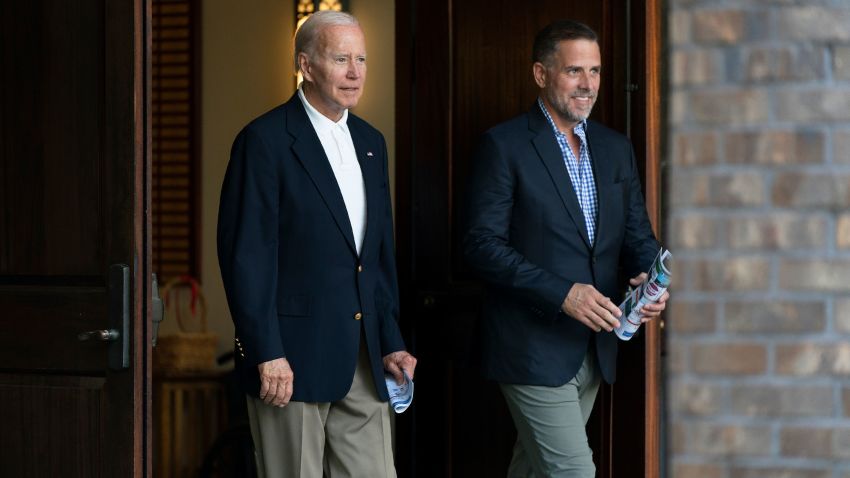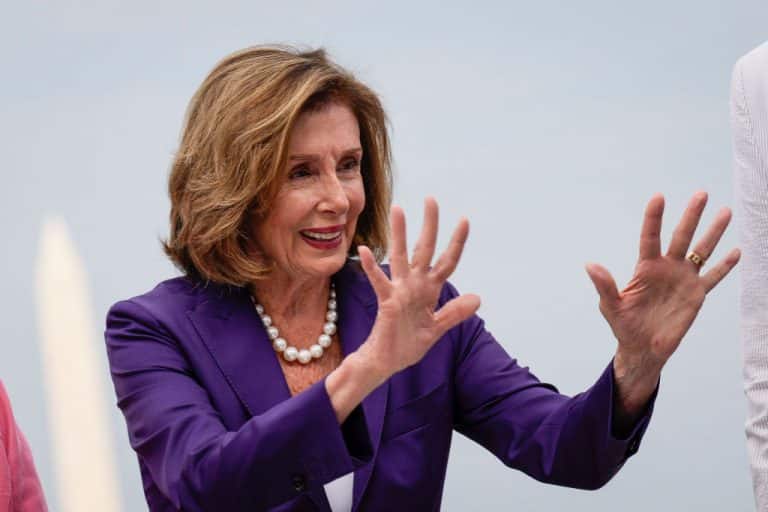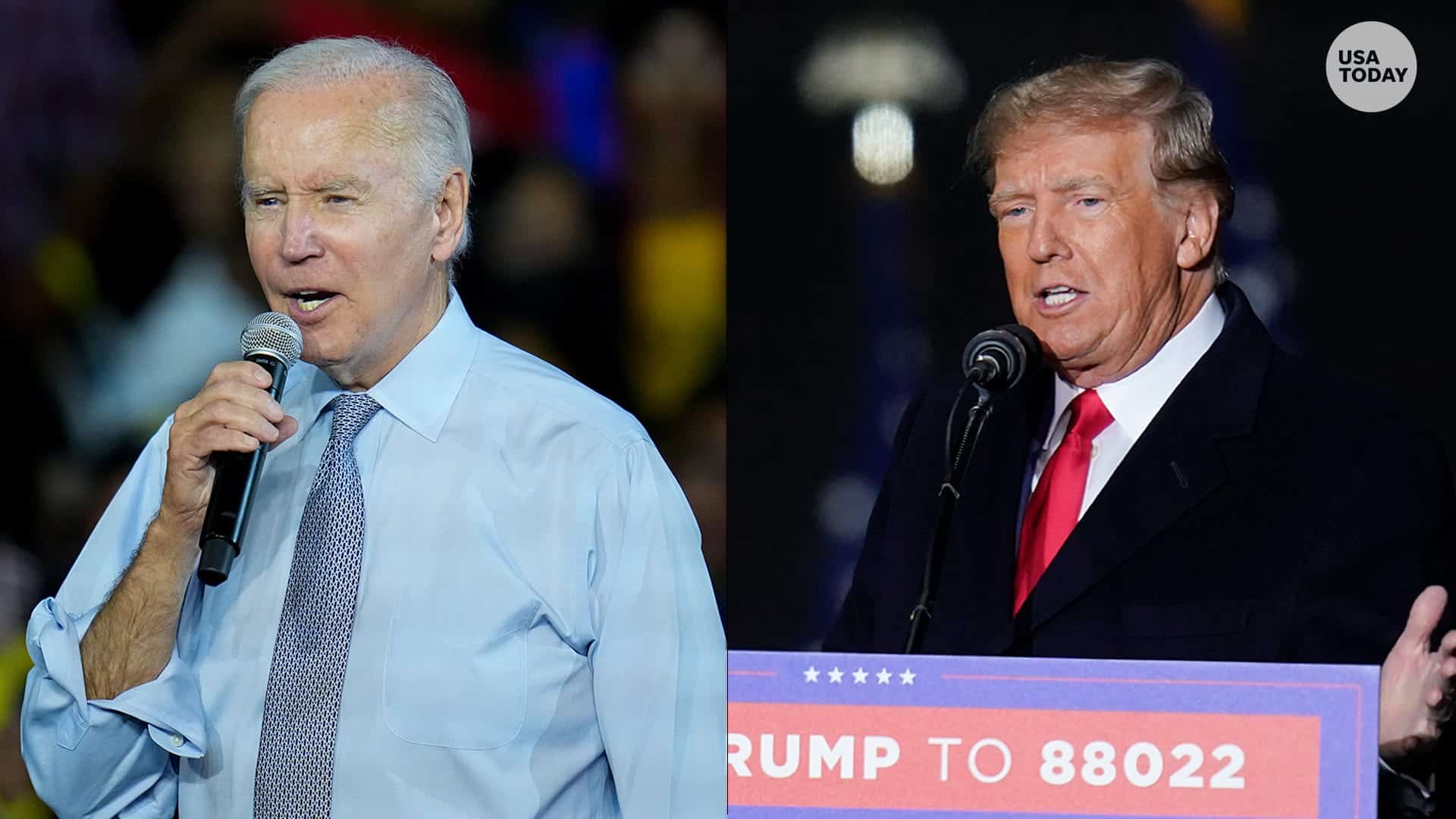Russia to build attack drones for Ukraine war with the help of Iran, intelligence assessment says

Iran and Russia have reached an agreement to begin the production of attack drones in Russia, according to a new intelligence assessment from a country that closely monitors Iran’s weapons program.
Goldman Sachs Warns Stock Market Slide Is Far From Over

This post was originally published on this site (Reuters)—Goldman Sachs on Monday warned that the global equity bear market is not over as the markets are yet to see a trough in the momentum of global growth deterioration, a peak in interest rates, and valuations lowered to reflect a likely recession. The Wall Street investment […]
Senate Democrats restart talks to try to help DACA recipients during lame-duck session

Senate Democrats are racing against the clock to try to strike an agreement with Republicans to provide a pathway to citizenship for recipients of the Obama-era Deferred Action for Childhood Arrivals program.
Who is Hakeem Jeffries? What you should know about Pelosi’s likely successor.

As outgoing Speaker of the House Nancy Pelosi prepares to step back from the top leadership position she’s held for decades, all eyes turn now to Hakeem Jeffries, the 52-year-old New York City representative poised to become the first Black lawmaker to lead a major political party in congressional history.
In a “dear colleagues” letter sent to congressional Democrats on Friday morning, Jeffries officially launched his bid to replace Pelosi, writing that “building upon my leadership experience and our shared journey, I look forward to creating a better future for all Americans and humbly ask for your support.”
In addition to backing Jeffries publicly as part of “a new day […] dawning” for the party, Pelosi has reportedly worked behind the scenes with her caucus to ensure he has an unobstructed path in her wake. Other members of the outgoing Democratic House leadership team have thrown their weight behind Jeffries as well, with outgoing Whip Rep. James Clyburn tweeting his support for “our new generation of Democratic Leaders, which I hope to be Hakeem Jeffries, Katherine Clark, and Pete Aguilar,” and party Leader Steny Hoyer writing his colleagues with a “strong endorsement to Hakeem Jeffries for Democratic leader, a role in which he will make history for the institution of the House and for our country.”
So who is Hakeem Jeffries, and what might the future of the House Democrats look like under his leadership?
A native New Yorker who worked his way up through local politics
Born and raised in Brooklyn, New York, Jeffries boasts that he is “a product New York City’s public school system, having graduated from Midwood High School” before getting a B.A. in Political Science from Binghamton University, then a Master of Public Policy from Georgetown University, and finally a J.D. from the New York University School of Law. He worked in corporate law for several years before entering into politics with a series of unsuccessful runs for the New York State Assembly. Finally, in 2006, Jeffries was elected to represent the state’s 57th Assembly District, where he quickly made a name for himself as a prospective national figure in part for successfully authoring and pushing through a bill to do away with the NYPD’s stop-and-frisk database.
in 2012, Jeffries declared he would run for congressional office to represent New York’s 8th District, which includes parts of Brooklyn and Queens, declaring pointedly that “Washington is broken. Congress is dysfunctional. People are suffering. We deserve more.” He won his election handily with more than 70 percent of the general election vote and was sworn into Congress the following year.
A “rising star” in the national party
Dubbed a “rising star” just one year into his term, Jeffries’ time in office has been marked by a meteoric ascension through the party ranks. In 2014, he was unanimously voted whip of the Congressional Black Caucus, and four years later, he defeated California Rep. Barbara Lee, whose tenure predated his by more than a decade, to become the Democratic Caucus chair — a step that led fellow New York Congressman Gregory Meeks to declare Jeffries “the present and the future” of the party. That same year it became clear that Democratic leadership was grooming Jeffries as a potential replacement, with both Pelosi and New York Senator Chuck Schumer going out of their way to single the congressman out in their conversations about where the party could go in the coming years.
What kind of congressman has he been?
Perhaps unsurprisingly for an ascending party leader, Jeffries has largely staked out a centrist position in regards to the Democrats’ major policy priorities: He’s sponsored bills focused on criminal justice reform, affordable medication access, and drug policy. He has been conspicuously hawkish on the United States’ relationship with Israel, declaring that “when you live in a tough neighborhood, Israel should not be made to apologize for its strength,” and criticizing the Obama administration for not vetoing a United Nations resolution calling for Israel to halt settlement construction in the West Bank. In 2020, in another sign of his being groomed for party leadership, Jeffries was tapped as one of the impeachment managers in the House’s first impeachment of then-President Donald Trump, and was dubbed the Democrats’ “messaging guru” for being, as The New York Times stated, “as likely to quote from the Bible as he is from 1990s hip-hop lyrics.
What kind of party leader would he be?
As Jeffries makes clear in his letter announcing his intent to run for party leadership, he has three major “operating principles” he’s relying upon: empowering every member, prioritizing security, and reclaiming the majority. Of those three, the first and third are clearly nods to the nuts and bolts of congressional leadership — building both intra-party coalitions, and reassuming the congressional majority. His second principle, however, is both an acknowledgment of the post-Jan. 6 reality of increased violence toward lawmakers themselves, as well as a hint that under his leadership, the party would focus on criminal justice and public safety legislation at large.
In his closing message to the party, he states unambiguously that “we can unify around an agenda designed to make life better for everyday Americans from all walks of life, and simultaneously embrace issues of social justice consistent with the promise of the Constitution.”
Democrats are scheduled to hold their leadership elections on Nov. 30.
House Republicans vow to investigate Biden and his family’s business dealings

After clinching the majority in the House of Representatives in the midterm elections, top Republicans on Thursday outlined a broad range of investigative targets focused on President Joe Biden and his family’s business dealings.
Pelosi to Announce ‘Future Plans’ After Republicans Clinch House

This post was originally published on this site House Speaker Nancy Pelosi will “address her future plans” Thursday after news outlets projected Republicans will narrowly take the majority in the House of Representatives. “This evening, the Speaker monitored returns in the three remaining critical states,” Pelosi spokesman Drew Hammill tweeted Wednesday. “The Speaker plans to […]
Deadly missile not ‘an intentional attack on Poland,’ Polish leader says: Ukraine live updates

This post was originally published on this sitePoland’s president said the missile strike, which killed two people in a rural area, was mostly likely an accident.
Do Republicans have to nominate Trump for president in 2024? Here’s what to know.

This post was originally published on this siteDoes a political party have to nominate a current or former president? No. Here’s what to know after Trump announced his 2024 candidacy.
Target Earnings, Sales Sapped as Consumers Pull Back
This post was originally published on this siteThe retailer missed quarterly expectations and lowered forecasts for holiday season.
Why the Georgia Senate race still matters

After last week’s elections, Republicans and Democrats started pouring resources into Georgia, the last big prize of the midterms. Sen. Raphael Warnock (D-Ga.) narrowly led Republican nominee Herschel Walker, but fell short of the 50 percent of the vote needed to win outright. The two will face off again in December, this time with no third-party candidate in the mix; it’ll mark the second time Georgia has had to hold a Senate runoff in less than two years.
For a few days, it even looked like the December vote might decide which party controls the Senate, as Georgia’s two runoffs did in 2020, but Sen. Catherine Cortez Masto (D-Nev.) has been projected the winner in a close race against Republican challenger Adam Laxalt, ensuring that Democrats will indeed hold onto their razor-thin Senate majority.
Since the Senate majority is no longer at stake, what is the biggest payoff Democrats and Republicans would get from a Georgia victory?
There’s still a lot riding on Georgia
The pressure on Warnock has eased now that Democrats have locked up Senate control, says Tori Otten in The New Republic, but “winning would still be a huge boon to his party.” The victories by Sens. Catherine Cortez Masto and Mark Kelly (D-Ariz.) gave Democrats 50 seats, so they will control the 50-50 Senate, even if only with Vice President Kamala Harris’ tie-breaking vote. But 51 seats would help them do a lot more.
It would let them move more forcefully, without constantly worrying whether moderate Democratic Sens. Kyrsten Sinema (D-Ariz.) and Joe Manchin (D-W.V.) will torpedo their plans. The extra seat also would “eliminate the unspoken power-sharing agreement between Senate Republicans and Democrats,” giving them a majority on committees that have been evenly split in the current 50-50 Senate. That would empower Democrats to “approve moves such as judicial nominations without having to persuade Republicans to their side.”
Democrats need the cushion
“There are ample reasons why improving on the bare-minimum majority of 50 Senate seats … is worth fighting hard for,” says Jeet Heer in The Nation. Senate Democrats have “some very old members in their caucus.” Sen. Dianne Feinstein (D-Calif.) is 89, for example, and Sen. Bernie Sanders (I-Vt.) is 81. “It would be a terrible thing if health issues made it impossible for either of them to carry out their duties, creating a period when Democrats no longer had control of the Senate.” If they get that 51st seat, they’ll be less likely to be stalled by an illness or any unforeseen absence.
A Warnock win also would give Democrats “less to worry about in 2024,” when the party’s “incumbents will face challenges in GOP-leaning states like Montana and West Virginia.” Democrats might very well hold those seats, but if they fall short in any races in what could be a tough year for them, getting an extra seat this year will give them some “breathing room” they otherwise won’t have. “Georgia is not just gravy.”
This seat is still crucial for the GOP
Republicans can’t let up in Georgia, even though the majority is no longer at stake, says Karen Townsend at Hot Air. “If Herschel Walker wins … he goes to Washington and puts the brakes on the Democrats’ actions.” The power-sharing he would force the Democrats into would be a “big deal,” because without it, “Democrats will be emboldened to push through whatever Biden wants,” giving “the progressives he seeks to pacify” a lot more leverage.
Weakening Democrats’ grip on the Senate also would help the incoming Republican majority in the House ensure that “Joe Biden’s radical agenda can be held at bay in Congress. That’s the best we can hope for after the red wave never materialized.”
Every Senate seat matters in an evenly divided nation
“Republicans won’t run the Senate in the next Congress,” says The Wall Street Journal in an editorial, “but whether they have 50 votes or only 49 after the Dec. 6 Georgia runoff still matters a great deal to policy outcomes.” Since committee assignments would no longer be split evenly in a 51-49 Senate, “Democrats would have less need to negotiate with the GOP.” And unlike Warnock’s 2020 runoff, which was to finish the two years of a term already underway, this vote is for a full six-year term, “which means this will matter to organizing the Senate for three Congresses.”
“The GOP has a favorable electoral Senate map in 2024, and every seat will make a difference in how many Democratic incumbents Republicans would need to defeat to regain the majority in what could be a difficult presidential election year for the GOP.” But the bottom line is that with the nation evenly and bitterly divided, “every Senate race now has major implications.” And after nominating “so many bad candidates” in 2022, every Senate contest is a make-or-break situation for the GOP.
